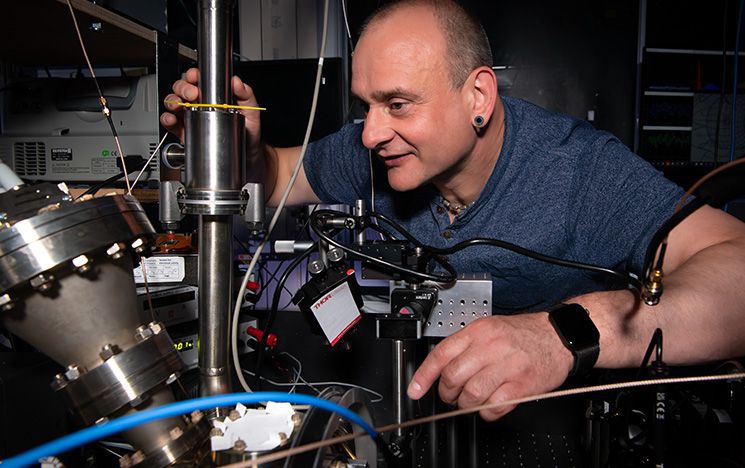EPSRC Centre for Doctoral Training in Quantum Information Science and Technologies
Benefit from our world-leading expertise in the field of quantum technologies and become ‘quantum ready’.

Our offer
The University of Sussex, in partnership with the University of Bristol, has launched the EPSRC Centre for Doctoral Training in Quantum Information Science and Technologies (QIST) funded via the UK Engineering and Physical Sciences Research Council (EPSRC).
Developed and delivered by a leading team of academics and industrial partners, this Centre will provide cross-disciplinary training in experimental and theoretical quantum information and quantum technologies. It will also provide specialised training in entrepreneurship, project management, collaborative working, responsible research and innovation (RRI), science policy and communication skills.
What you get
The Centre offers a four-year programme with scholarships covering:
- a maintenance allowance above UK Research Council rates
- PhD fees
- a research and training allowance.
Quantum Information Science and Technologies PhD
Find out more about our Quantum Information Science and Technologies PhD.
An expanding sector
A 2023 report by the Boston Consulting group noted that quantum computing could provide up to $10bn in benefits worldwide within five years, with this number skyrocketing to $850bn over the next 15-30 years. Similar numbers are provided for quantum sensing ($5bn by 2030) and communication ($13bn by 2030).